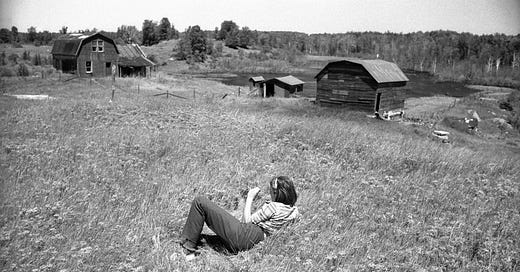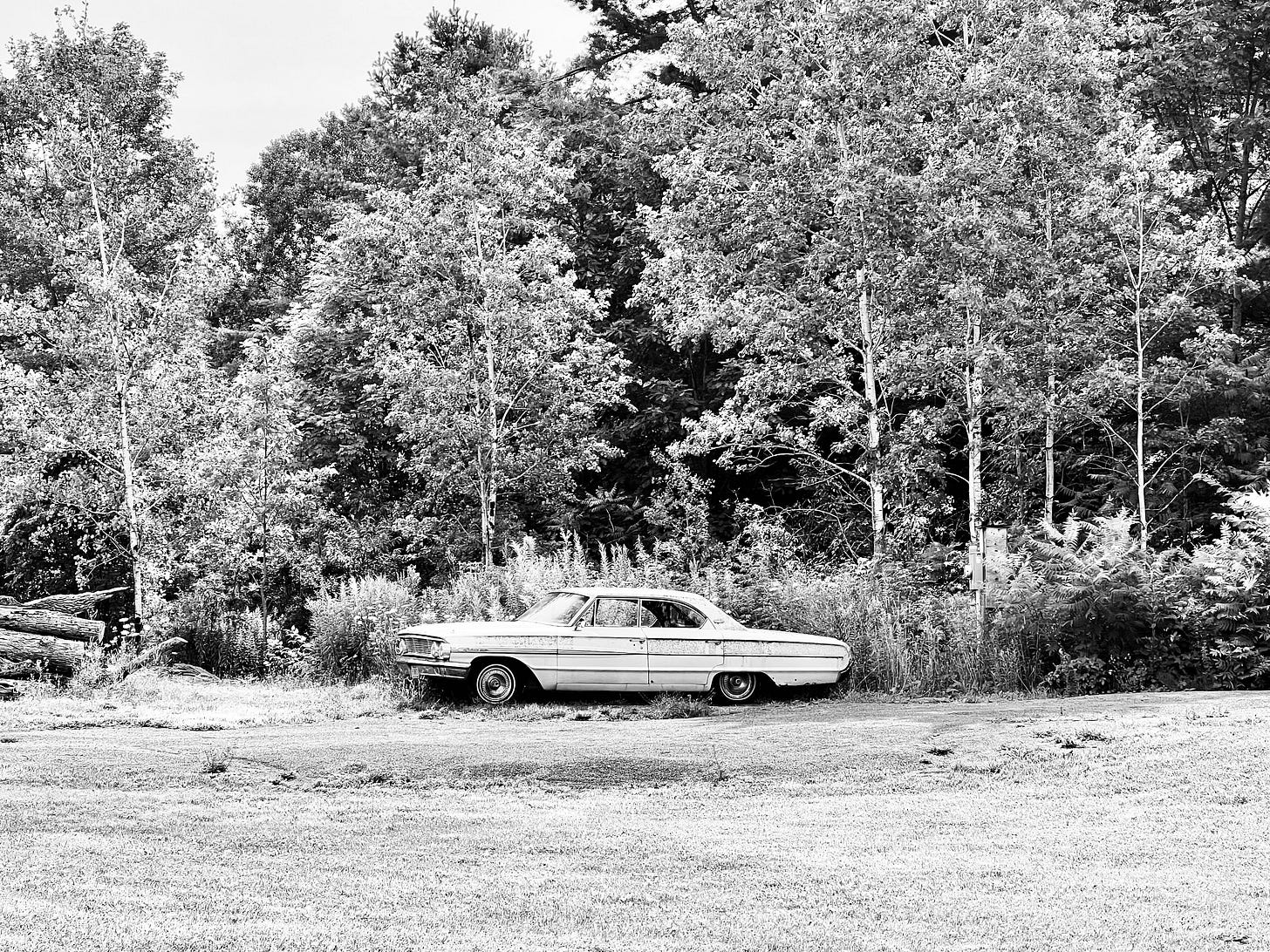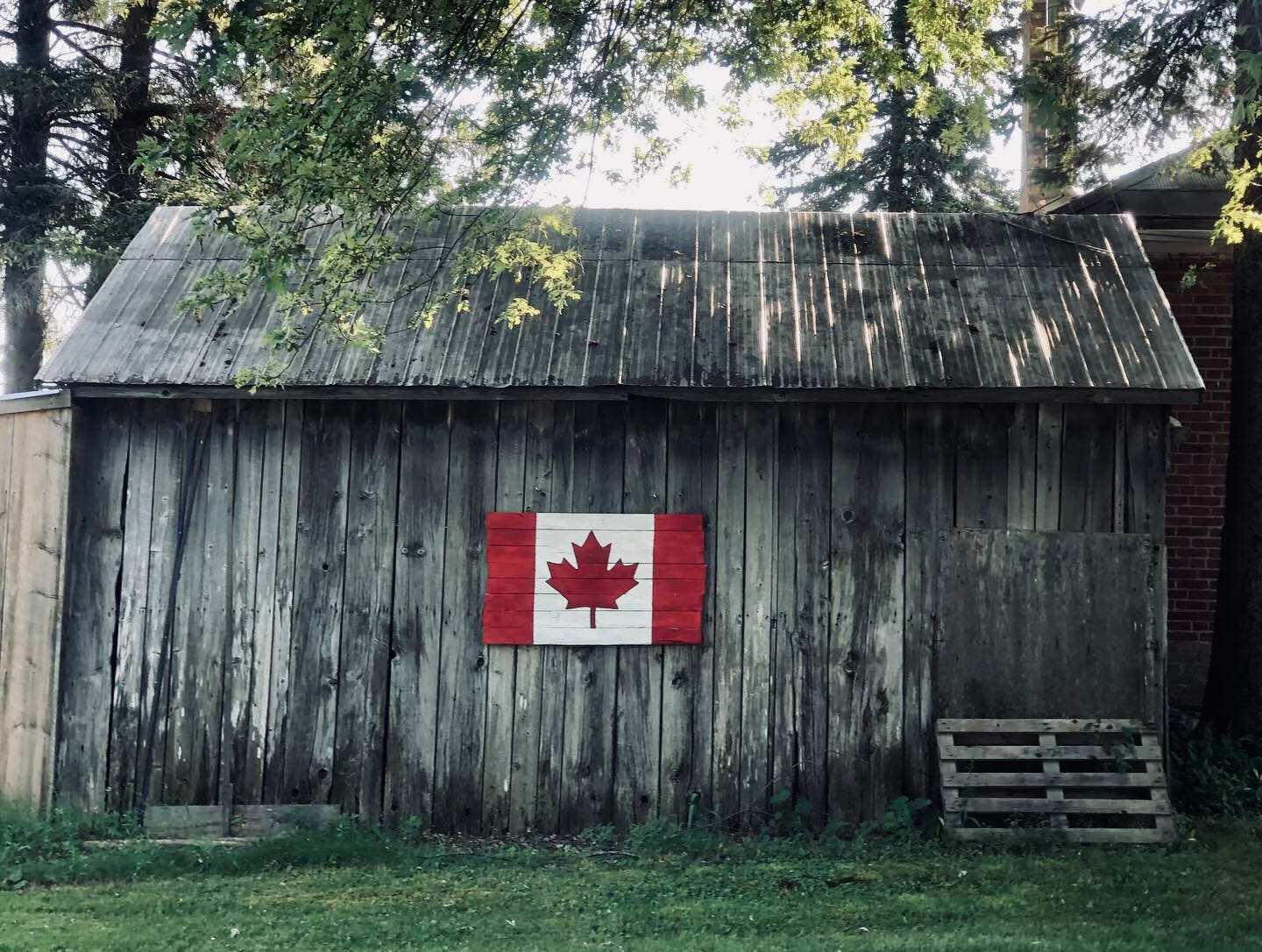Hello, I’m back with a bonus post for paying subscribers, this week on lifelong literary inspiration. If you’d like to enjoy this in full, please consider supporting work in process with a modest subscription fee. I’ll be back to bi-weekly posts, on Tuesdays and Fridays (or if I’m running behind, Wednesdays and Saturdays). I do hope you’ll join us. Now, as my dad used to say, Onward…..
I was in a hotel room in Florida last week when I learned that Alice Munro had died at 92. The Canadian short story writer lived in Ontario, published 14 books, dozens of stories in The New Yorker, and won the Nobel Prize for Literature in 2013, the same year she retired from writing (still, one could always hope). She was and will always be my favorite writer, ever.
I had expected this, someday, of course, but expecting it had not made me dread a world without Alice Munro in it any less. I sat on the cheap bedspread and felt a vacuum open in the room. Her absence had a shape to it, an almost tangible emptiness. It was the same way I felt when I heard that the Vietnamese Zen monk Thich Nhat Hanh had died, in 2022—a formidable spirit whooshed away. (I did not know then that the literary press he founded would later publish Brief Flashings in the Phenomenal World).
I didn’t know Alice Munro personally, but I felt as though I did. Most of her stories were set in Canada, many in southern Ontario, not terribly far from the island where I spend my summers. I recognized the geological landscapes of her storie—the bland, rolling farmland and patchy barns; the shabby meadows of Queen Anne’s lace growing wild along split-rail fences; the strange lumpy drumlins the glaciers had left behind. This was the countryside I’d known my whole life. Her characters were familiar, too: seemingly ordinary and unsurprising, until they did something both entirely human and surprising, and the plot skewered sharply in a new, unanticipated direction.
Alice Munro is not showy. This is one of the many things I love about her writing. She does not flaunt extravagant language or melodrama. Absent entirely is sentimentality. Even her plot twists are quiet, which makes them more affecting. Still, things happen—life happens—in her stories. She is a master of time, compressing decades in a single sentence, expanding moments so wide you can slip inside.
Many Alice Munro stories and characters I remember years after reading them: the restless Vancouver housewife who goes home with another man. The couple driving through rural Ontario on the way to receive medical news, trying to locate remnants of the last Ice Age, landmarks from their former life. She writes with an air of plainness that does not feel anachronistic, but rather daring and bold.
In the heavily perfumed hotel room overlooking a parking lot in south Florida, I missed her immediately, immensely, forever.
When I got home from Florida, I went straight to my bookcase for a visit, and a vigil. I tend not to organize or group my books, with the exception of my Alice Munro shelf. It holds all my prized copies, including a signed edition of Dear Life and the first collection of hers I ever bought, a used, mass-market paperback copy of The Moons of Jupiter. I’d dog-eared the story “Dulse,” such a fine one!
It’s a truism that reading literature makes you a better writer. If you want to write well, you must read well, too. Reading as a child was what made me want to become a writer: the ability to create vast, imaginary worlds into which readers could disappear for a time seemed the most astounding magic trick of all. It was all I wanted to do.
Finding Alice Munro for the first time was like finding myself, my own voice—one filled with restless longing and questions, a fierce desire to live all the way into a life, even if it comes with a cost, to experience what it means to leave home and come home at the same time. Munro wrote auto-fiction before it was called that; her characters, many loosely based on her own life—a chronically ill mother, childhood on a fox farm—were so convincing and real, they existed on their own, fully formed. If anyone criticized Munro for mining her own life or for revisiting the same themes of loyalty, independence, creativity, and freedom over and over—decidedly counterculture for women in her time—she clearly didn’t listen. This was her life—and life—after all.
In this way, Munro offers us a lesson. Write what you know, what moves or disturbs you, delve into your obsessions, make a relationship through your words with the places you know best. Keep going. As the late great Japanese Zen teacher Dainin Katagiri told his students, Don’t be tossed away.
I always wanted to go to Alice Munro country, in Huron County, four hours west of our lake. Like Munro and her stories, the land seemed so timeless, I thought it would always be there, exactly as she’d known it. I pictured wandering into a country store at a forlorn crossroads, straight out of her books, and finding her there. If I go this summer, and maybe now I finally will, she will be gone, but not really. Her stories will never disappear.
Maybe I’ll write a story at the cottage this summer, as I have in years past, about our part of the province. Bumpy blacktop farm roads as straight as arrows and fields scattered with hay bales that my mother calls “Muffets,” like the shredded wheat cereal she ate as a girl. In my imagination, I conflate my mother with Munro, ten years her senior, a strong, capable Ontario woman like her. Maybe I don’t need to go to Huron County after all.
Either way, I know what I will do: Submit one of my summer stories for publication, finally. What are we waiting for? I offer you the same advice Alice Munro, through example, gave me: Keep going, don’t ask for permission or expect an invitation, write anyway. Don’t stop until you must.
And if you haven't read an Alice Munro story recently or ever, run don't walk to your local library or bookshop and pick a book—any book—from the shelf. Start anywhere and see where she takes you.
Then please write me and share what you found, and the writer who’s influenced you the most.
thanks for being here, and happy reading!
BE the flashings~~
katie









